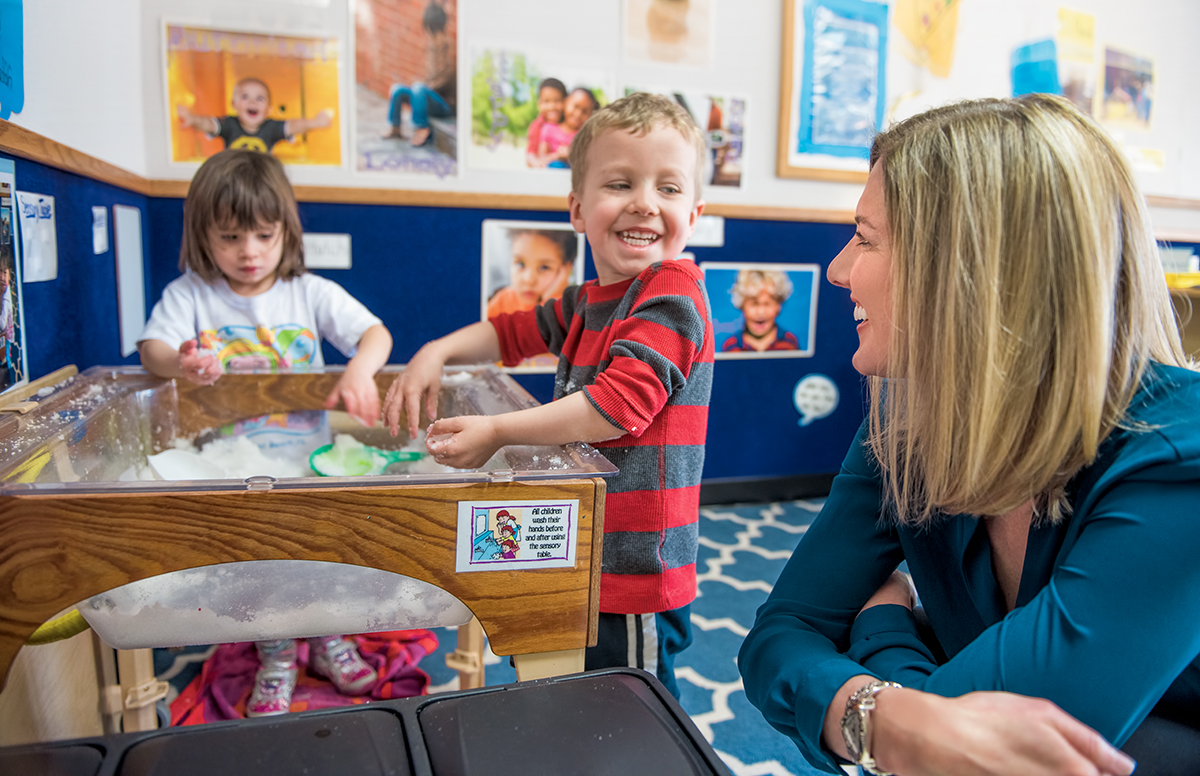It’s no coincidence that the birthplace of the University of Minnesota is just downriver from St. Anthony Falls on the Mississippi. As a land-grant research university, it has served the state’s needs from the beginning. Public art outside the Education Sciences Building on East River Road commemorates the red-brick giant’s former life as the Mines Experiment Station, where the taconite production process was invented.
Today the renovated building is the home of the Department of Educational Psychology, part of the College of Education and Human Development (CEHD). The focus within its walls is now on learning itself. And the inventing continues.

The Bayh–Dole Act of 1980 for the first time allowed universities to commercialize findings from research conducted with public funds. As cuts to universities’ budgets accelerated in the early 2000s, the incentive to commercialize rose at the same time as technology was revolutionizing the possibilities for educational products and services.
In the past decade, the University’s Office of Technology Commercialization has launched 84 start-up companies. The first to emerge from CEHD was based on the research and development of faculty in the Department of Educational Psychology a few years ago (see sidebar box, below). That proved not to be just a flash in the pan.
In the fiscal year that ended June 30, 2015, the U launched a record 16 start-ups, and three of them came out of CEHD. Reflection Sciences, FastBridge Learning, and Vidku each has a distinct vision and path to success.
“Not just the funding but the values of our college need to be front and center in our land-grant mission,” says CEHD chief of operations Ryan Warren.
“If people out there are using things that aren’t working while we’ve discovered things we know do work,” he says, “it is our obligation to get the word out and change that dial.”
These are the stories of the faculty and research behind three CEHD start-up ventures.
Reflection Sciences: Measuring what matters—a simple tool to assess executive function for caregivers and teachers
FastBridge Learning: Empowering teachers to help students succeed—the next generation of classroom assessments, twice as fast at half the cost
Vidku: Designing for sharing stories—building on the power of short videos
Story by Gayla Marty | Photo by Jayme Halbritter | Spring/summer 2016
 Three-year-old Mason showed pretend snow to Stephanie Carlson, a professor in the Institute of Child Development. Carlson is also CEO of Reflection Sciences, one of three start-ups to emerge from CEHD in fiscal year 2015.
Three-year-old Mason showed pretend snow to Stephanie Carlson, a professor in the Institute of Child Development. Carlson is also CEO of Reflection Sciences, one of three start-ups to emerge from CEHD in fiscal year 2015.